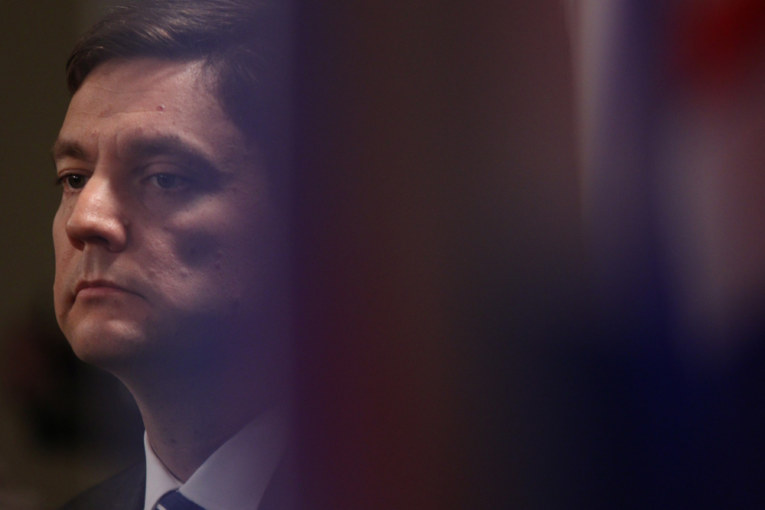
CALGARY – Should Alberta’s government use its new powers to throttle back oil shipments to British Columbia, the coastal province plans to be in court that same day to seek an immediate injunction, and is looking to source its oil needs from the State of Washington.
B.C. Attorney General David Eby said Friday that Victoria’s primary response is to seek legal remedies to the law Alberta passed this week – which would allow politicians in Edmonton to control the flow of oil, natural gas and refined products out of province in response to B.C.’s opposition to the Trans Mountain expansion proposed by Kinder Morgan Canada Ltd.
British Columbia’s secondary plan is to backfill a shortage of fuels such as gasoline and diesel from the United States, and Eby said the provincial government is in discussions with Washington state in preparation.
“There has been work done with Washington state in identifying additional reserves that we might be able to use in the unlikely event that Alberta actually attempts to use this unconstitutional legislation,” Eby said.
Eby did not have specific figures on the province’s oil reserves and preparedness in case it needed to fuel ambulances or fire trucks during an oil flow restriction. Other B.C. government departments deferred questions around logistical preparedness to the attorney general’s office.
“But the general consensus that the possibility of Alberta actually using this is highly speculative for a couple of reasons. They’d have to get through convincing a court that they have the power to do this, which we don’t think they do,” Eby said.
“Secondly, they’d have to grapple with the impacts of that on their own industry,” he said.
An Alberta government spokesperson said the province’s public service does not track fuel inventory levels in British Columbia and is not looking to time its use of Bill 12 around a shortage.
There are a number of fuel terminals in B.C. operated by Calgary-based oil producers Suncor Energy Inc., Husky Energy Inc. and Parkland Fuel Corp.
Suncor, which owns Petro-Canada gas stations, operates terminals in Nanaimo, Kamloops, Terrace and on the Burrard inlet in Port Moody and Burnaby.
Husky operates branded gas stations throughout the province as well as a 13,000-barrel-per-day refinery in Prince George, which sources part of its oil from north-eastern B.C. oil and gas fields.
There are also two oil-by-rail offloading facilities in the province, both of which are in Burnaby, and capable of delivering a total of 10,000 bpd to the province, according to the National Energy Board.
Suncor declined to provide information on whether it had been building up inventories in preparation for Alberta turning off the taps, saying it was commercially sensitive information, said spokesperson Sneh Seetal.
The general consensus of Alberta actually using this is highly speculative. They’d have to get through convincing a court that they have the power to do this, which we don’t think they do. Secondly, they’d have to grapple with the impacts of that on their own industry
B.C. Attorney General David Eby
Parkland is currently developing contingency plans in case there is a restriction from Alberta. “Should the Alberta government move to restrict petroleum shipments to British Columbia, the overall market would be challenged near term to fully supply the region through alternative means, including marine importation,” company spokesperson Leroy McKinnon said in an email.
Husky spokesperson Kim Guttormson said her company’s refinery in Prince George was supplied by B.C. oil production. “We would certainly do our best to continue supplying customers in that region of B.C.,” she said.
Other regions might be hit harder.
“Albertans, British Columbians and the rest of Canada should understand that if the path forward for the pipeline through B.C. is not settled soon, I am ready and prepared to turn off the taps,” Notley said this week.
If Notley does follow through on that threat (she refused to detail a schedule on when that could happen), analysts expect fuel prices in B.C. could jump 30 cents to 45 cents per litre.
Eby did acknowledge there could be some economic damage to B.C. in the time between when an injunction is requested and when it is granted, but said he expected Alberta would end up paying those damages if B.C.’s lawsuit succeeds.
• Email: [email protected] | Twitter: geoffreymorgan
You can read more of the news on source
